You toss and turn, rumpling your sheets and pillow. From the gap between your curtains, you notice the sky change color. You try but it seems like you’ve forgotten how to fall asleep. As the birds begin to tweet, you are filled with a sense of dread. Your room fills with light and you turn over, trying to get comfortable but knowing that it is all in vain. You’ve just had one more sleepless night and have to face yet another day of drowsiness and low energy levels.
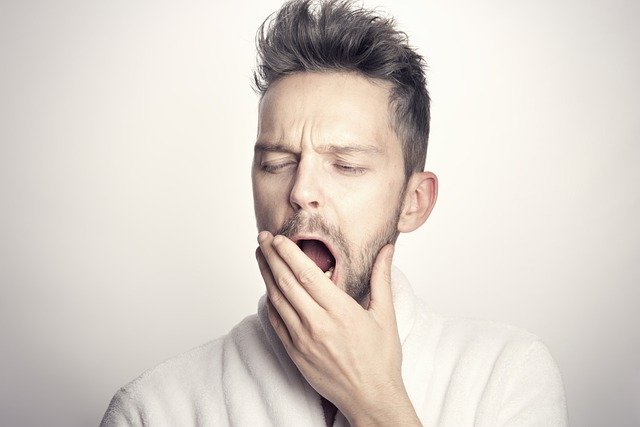
By the time you hit the age of 80, you’d have spent 28 years of your life sleeping. For an activity which dominates nearly a third of our life and should come so naturally to us, the estimate of about 4 in 10 Australians not getting enough sleep is surprising. While some of these numbers may be attributed to sleep disorders, for the majority it comes down to poor habits and choices.
In this article, we’re going to discuss the art of sleeping and how to sleep better, longer, and deeper.
What is sleep?
While we still understand remarkably little about sleep, we know that it is the temporary suspension of your consciousness. When you sleep, your eyes are shut and your body is still but your brain is still working on all cylinders.
Your body’s internal clock functions on a 24-hour day-night cycle called the circadian rhythm. When daylight begins to fade, your brain secretes melatonin to prepare you for sleep. Your body slows down and you may feel drowsy.
When you go to sleep, your body enters a state of altered consciousness. Sleep occurs in five stages which affect the way your system functions. There is still a lot of research going on to study the purposes of sleep, but it is believed that this is the time when your body does its ‘housekeeping’ – a string of functions to repair and process the requirements of your body and brain.
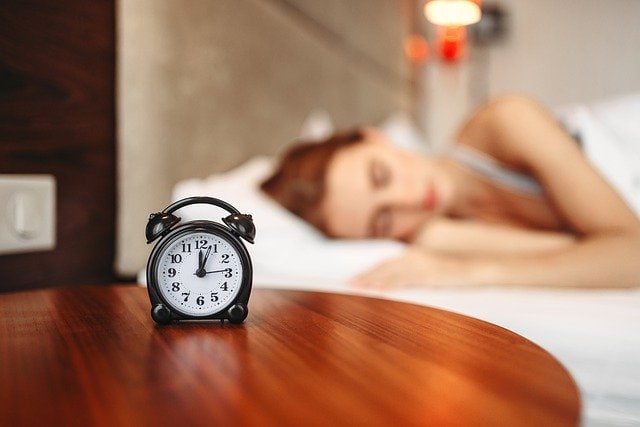
Why is it important to know how to fall asleep?
Despite the tremendous amount of research carried out on sleep, we are nowhere close to understanding the exact reasoning behind why we need to sleep. However it is generally agreed that sleep restores us physically while helping us to organize information in the brain. Essentially you need sleep so that your body and mind can function properly.
Besides this, sleep offers numerous specific benefits:
- It allows the immune system to function optimally, keeping you free from illness and disease
- It keeps the heart and blood vessels healthy
- It allows for growth and healing
- It regulates your appetite, thus helping you to maintain a healthy weight
- It is paramount to attention, memory and learning
When your circadian rhythm is imbalanced for extended periods of time, diseases and conditions such as insomnia, narcolepsy or delayed phase sleep disorder can arise.
In most cases however the lack of sleep might be down to poor choices and simply not knowing how to sleep. If you are finding it hard to sleep, read on to understand more about it and learn our top tips.
NOTE: It is vital that you get yourself diagnosed if you feel you are suffering from a sleep-related illness. After a diagnosis, a sleep management treatment is prescribed. This may include a combination of medication as well as changes to diet and lifestyle.
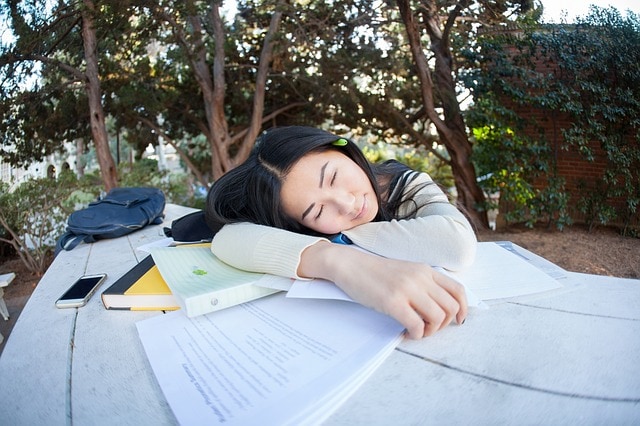
What happens if I do not know how to fall asleep?
Sleep is so vital to your health that it is often referred to as the third pillar of health, next to eating and exercising.
In a study conducted by the Department of Psychiatry in the University of Chicago, ten rats were deprived of sleep, food and water. The rats deprived of sleep died faster than the rats that were deprived of food. This goes to show that sleep and knowing how to sleep are vital to not just your health but your very survival.
If you do not not how to fall asleep, you may notice the following symptoms:
- Pale skin and dark circles under your eyes
- Hunger pangs and weight gain
- Difficulty in concentration and maintaining focus
- Increased susceptibility to common diseases such as cold and cough
- Decreased libido and sex drive
In the long run, a lack of sleep has been linked to the following conditions:
- Heart disease
- High blood pressure
- Auto-immune disease
- Migraine
- Diabetes
- Cancer
- Premature death
How much sleep do I need?
On an average, most human adults require about 8 hours of sleep every night. Children and teenagers require more sleep time, while older people require the same amount of time as young adults.
For older people, the likelihood of suffering from health conditions or sleep-related issues is higher. They tend to sleep lighter and for shorter time spans compared to when they were younger. The amount of sleep you require specifically depends on your health, age, activity level and a number of bewildering factors but can be generalized by age as follows:
- 1-2 years: 14-17 hours
- 3-5 years: 10-13 hours
- 6-13 years: 9-11 hours
- 14-17 years: 8-10 hours
- 18-65 years: 7-9 hours
- > 65 years: 7-8 hours
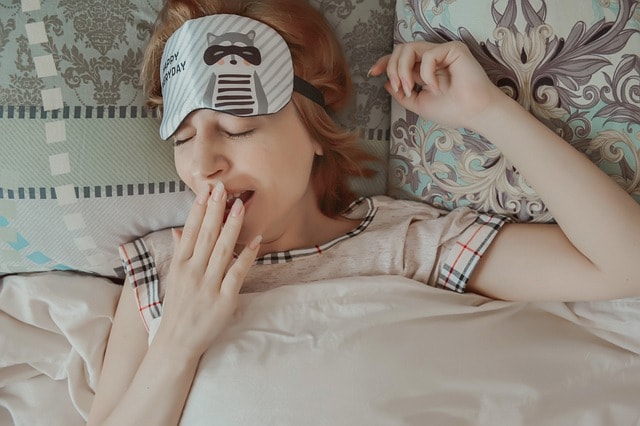
How to fall asleep – Habits that help you sleep
Good sleep hygiene is another term for sleeping habits that are healthy. Understanding these habits is critical to understanding how to sleep. They can’t force your body into sleeping but simply increase the likelihood of quality and quantity of sleep. Good sleep hygiene is dependent on your sleeping environment, the timing of a few activities and your diet. If you want to know how to sleep, try to develop these habits so you can start sleeping better:
Regulate your sleep
Maintain a sleep schedule and try to wake up and go to sleep at the same time every day. As your body adjusts to a routine, it will send signals to fall asleep at a specific time.
Avoid taking long naps during the day so that you are sure to be sleepy at night.
Avoid oversleeping in the morning and on weekends as it changes your sleep schedule. If you haven’t slept enough during the week, go to bed earlier than usual for a few days, but wake up at the same time.
Steer away from bright light in the evening. Bright lights send a signal to your brain to stay alert and will have a negative impact on your feeling of drowsiness.
Seek bright light in the morning so that your body knows it is time to wake up and begin functioning. Light encourages the circadian rhythm to maintain the right pace.
If you go to bed and are unable to sleep, do not fret. Thinking about it often makes you anxious and will interfere with your sleep. Instead do something peaceful that you enjoy doing (maybe read a few pages of a book or meditate) until you feel sleepy.
Create a sleep-friendly environment
Stay active during the day. Get some exercise and spend some time in the sunlight so that your body is tired and ready to sleep.
Design a space for sleep. Your bed should not be a place to eat, drink, work or answer phone calls because the mental associations with this may interfere with your sleep routine.
Avoid devices as much as possible in the evening. Your electronic devices have screens that emit blue light which delays the release of melatonin. Your mind remains alert and refuses to shut down when exposed to screens during the hours before bedtime. If you can switch to books, hobbies (without using a screen) or family time before bedtime, you will begin to feel sleepy at the right time.
Reduce your caffeine intake and avoid caffeine after lunch. Caffeine is a stimulant that increases alertness and speeds up your heartbeat. Drinking it in the first half of the day can help you feel more alert, but avoid drinking it up to six hours before bedtime. Don’t forget that many soft drinks and energy drinks contain caffeine. Switch to hot water or green tea instead for a healthier habit that lets you sleep.
Avoid heavy meals before bedtime. Your body needs time and energy to digest a heavy meal and you will not be able to feel sleepy during this time.
Don’t exercise up to 3 hours before bedtime. When you exercise, your body releases endorphins to pump you up and make you feel energized. This ‘buzz’ of exercise usually takes a few hours to fade and will keep you up at night.
No drinking or smoking in the evening. Alcohol may induce temporary drowsiness but can severely impact your deeper sleep cycles resulting in poor quality of sleep. In addition to the multiple harmful effects of nicotine, it can also affect the way you sleep.
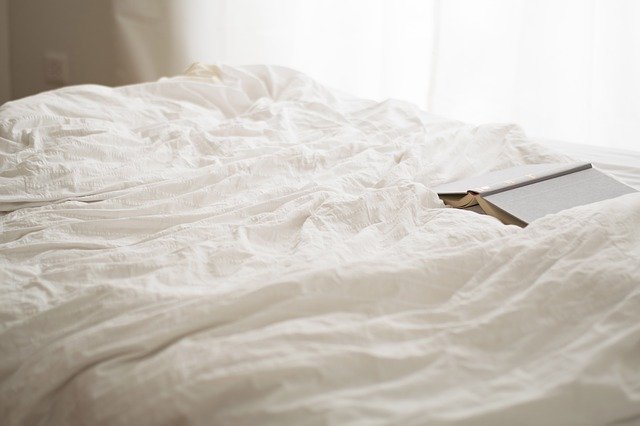
Prepare yourself for sleep
As bedtime approaches, do a few things that will put you in the right frame of mind for sleep.
Allow your mind to wind down and refrain from checking email, doing household chores or thinking about work. Focus instead on the things that help you relax – your hobbies or your family or pets.
Create a comfortable routine to help your body to relax. Take a warm shower and put on loose soft clothes. You might even like to do some gentle stretches in bed to help your muscles feel limber and loose.
Your bedroom should encourage sleep. Make sure the room is not too hot or too cold and that you will not be disturbed by light or sounds from outside. Try to keep it free of clutter as this may make you feel stressed or anxious.
To get a good night’s sleep, you should be comfortable in your bed. Is your pillow too hard? Is your mattress lumpy? Adjust your bedding to make sure you are well-supported and that your body temperature is maintained.
What medical options do I have to help me sleep better?
If you still cannot seem to figure out how to fall asleep, it is best to seek medical help or alternative forms of treatment. You may want to begin with your general practitioner to identify any larger factors that are impacting your sleep cycle. They will be able to help you understand how to fall asleep or they may refer you to a sleep specialist or a sleep clinic if needed. A sleep clinic may recommend one of the following treatments:
- Cognitive therapy if you are worried about sleep quality and sleep related issues
- Stimulus control if you have started associating the bedroom with stress, frustration and worry
- Sleep restriction to improve sleep quality and quantity
- Relaxation training or meditation which will help calm an overactive mind and body allowing you to wind down
If you follow the above mentioned guidelines, you should develop good sleep hygiene in the long run. It won’t be an overnight change but it will be sustainable and healthy.



